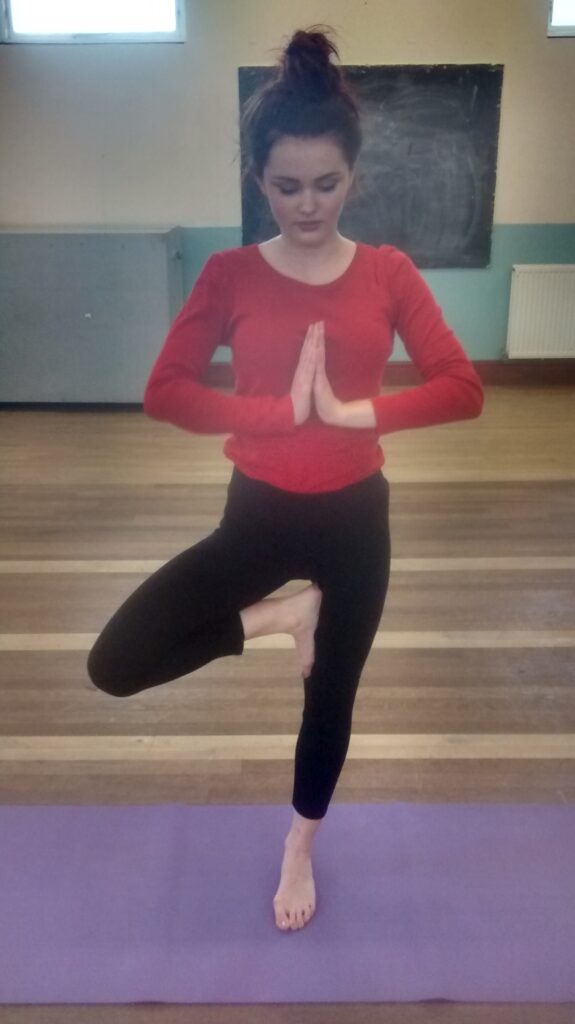Yoga For Children and Adolescents
Yoga: Union of body, mind and spirit.
Why Yoga For Children and Adolescents?
Yoga is beneficial to everybody, regardless of age.
By the age of about 21/2-3, toddlers are able to participate independently alongside their parents/carers and enjoy more fully the specially designed sessions that incorporate fun with learning and promoting a healthy lifestyle. Primary school children develop an awareness of the benefits of yoga, as well as finding the sessions fun. Because yoga is always non-competitive, focusing on the individual and his or her own limits, it can be enjoyed by any child of any ability. Each child will experience different benefits from his or her practice. Yoga in schools and pre-schools has been shown to be effective in many ways, and a holistic, child-centred approach is fundamental.
As children develop into adolescence, issues such as body identity, self-esteem, lack of confidence and surging hormones lead to children becoming more self-aware, and all too often developing a negative self-image. Yoga is a wonderful medium to help counteract the negativity and pressures imposed on today’s children and young adults.
Because of the flexibility of yoga (no pun intended), sessions can be designed that are age-appropriate and specific to the needs of the group. It is safe when practiced with a competent, qualified children’s yoga teacher and requires no specialised equipment, other than a clean floor and adequate space for the number of children involved.
What Are The Benefits of Yoga For Children?
A comprehensive list of benefits of practicing yoga is given at the bottom of the Yoga page, however, some of the most important ones are:
Physical:
- Breathing exercises improve concentration, strengthen the abdominal muscles and balance energy levels.
- Postures help support the immune, respiratory, circulatory and digestive systems whilst strengthening the core stabilising muscles of the abdomen and back.
- Posture work helps to tone the body, maintain joint mobility and develop good posture. It helps children to become more conscious of their body in a positive way by learning how to look after their body and promoting an awareness of the foods that they eat.
- Yoga maintains a child’s natural flexibility, which can begin to change from a surprisingly young age, especially once they begin to spend more time at their school desks and are easily distracted away from physical activities by computer games and television.
- Young boys tend to become stiff in the back of their legs which makes touching their toes more of a challenge. In the long term this lack of flexibility can cause discomfort in the lower back.
- For girls, yoga helps to develop upper body strength as well as stability in the knees and ankles.
- Yoga can improve agility in sport and helps to prevent injury.
Mental Benefits:
- Yoga improves self-confidence through teaching children breathing techniques and encouraging them to use their voices.
- Postures are designed to release day to day anxieties as children often find it easier to express their emotional state in a physical way.
- Relaxation techniques bring clarity and stillness to the mind, allowing for improved memory retention which helps children learn more easily. We absorb information better when our brain waves are in a slower pattern. When we limit outside distraction and work on the sound of our breath and relaxing our body, our brain waves will naturally slow down.
- Sessions help children to develop their own creativity through stories and adventures – sessions are always child-centred and often led and developed by the children as they evolve. This process helps to use the whole brain and facilitates children learning through their senses as well as through a more structured approach.
- The practice of yoga improves co-ordination and balance. It promotes healthy sleeping patterns and allows children to explore their intuitive nature and spirituality.
Emotional Benefits:
- Improved self-esteem.
- Reduction in the need to compare against peers.
- Better acceptance of the Self.
- Finding a safe, inner place, to be.
If you are interested in your child taking part in a yoga session please use the contact page.
